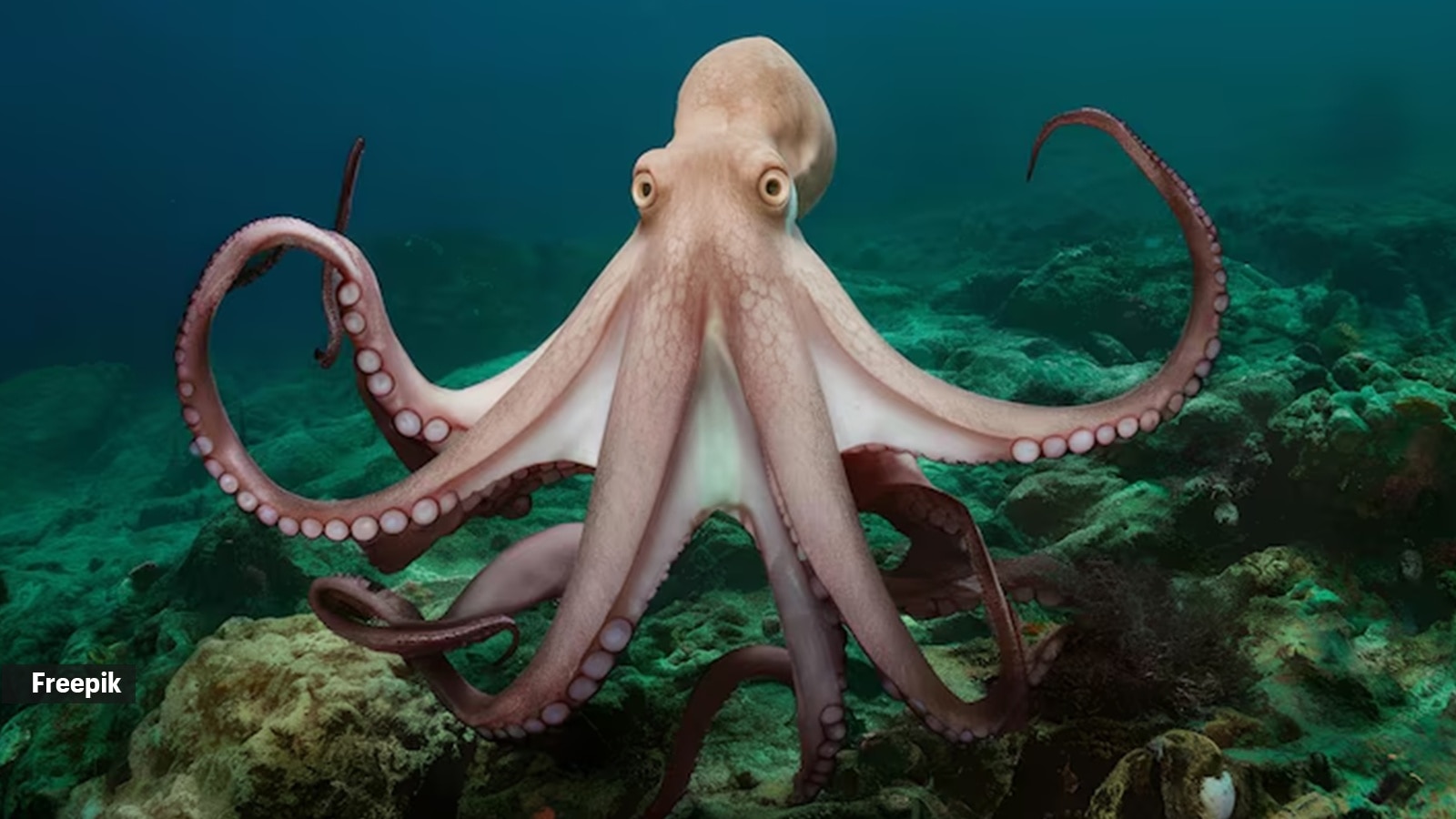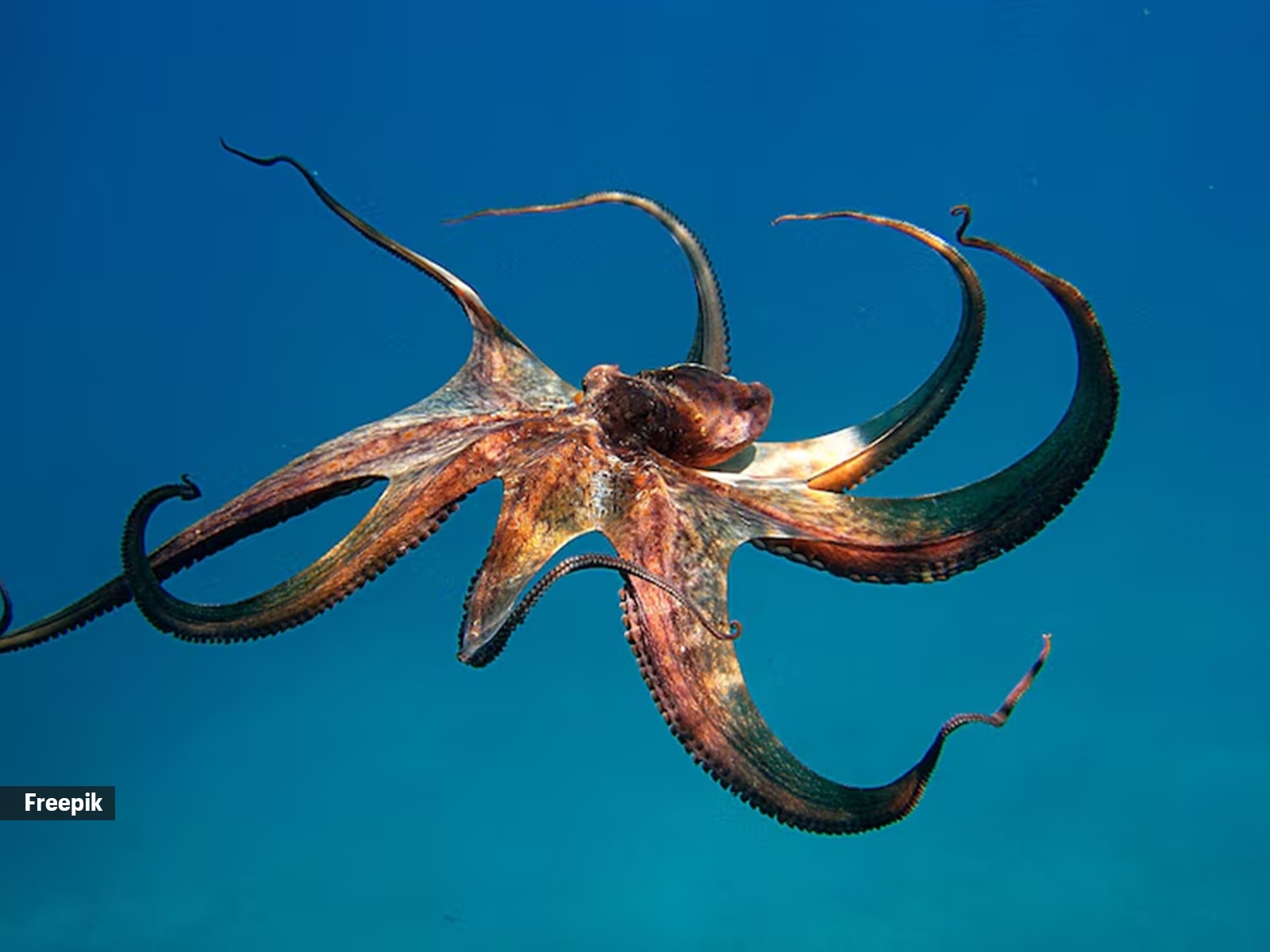📣 For more lifestyle news, click here to join our WhatsApp Channel and also follow us on Instagram
5 reasons octopuses are nature’s most mysterious geniuses
Many don’t know this, but octopuses are the ultimate ocean escape artists and problem-solvers.
 5 incredible superpowers that prove octopuses are in a league of their own (Source: Freepik)
5 incredible superpowers that prove octopuses are in a league of their own (Source: Freepik)Octopuses are some of the most fascinating and mysterious creatures in the ocean. With their alien-like appearance and highly intelligent behaviour, these eight-armed invertebrates have long intrigued experts. But beyond their camouflage skills and squishy bodies lies a world of mind-blowing abilities that challenge everything we thought we knew about animal intelligence.
Many don’t know this, but octopuses are the ultimate ocean escape artists and problem-solvers. Here are five incredible superpowers that prove these sea creatures are in a league of their own.
Limb regeneration
One of the most astonishing abilities of octopuses is their power to regenerate lost limbs. If an octopus loses an arm due to injury or a predator attack, it can grow a completely new, fully functional one complete with nerves, muscles, and even its unique sensory abilities.
 Octopuses have an impressive ability to recognise individual humans (Source: Freepik)
Octopuses have an impressive ability to recognise individual humans (Source: Freepik)
More than one brain
Yes, octopuses have more than one brain. And astonishingly, each of their eight arms has its own independent mini-brain. These neural clusters allow the limbs to function semi-autonomously, exploring, touching, and even making decisions without direct input from the central brain.
Ability to recognise humans
Octopuses have an impressive ability to recognise individual humans, a trait that’s rare among invertebrates. In both lab and aquarium settings, they’ve been observed showing distinct preferences and behaviours toward different people. Some octopuses are known to willingly interact with familiar caretakers, while reacting defensively or avoiding those they don’t like.
Immaculate escape artists
Octopuses are masters of disguise and escape, making them some of the most elusive creatures in the ocean. Their skin contains specialised cells called chromatophores, which allow them to instantly change colour and texture to blend in with rocks, coral, sand, or seaweed. Some species even mimic the shape and behaviour of other marine animals to avoid danger. Their soft, boneless bodies also enable them to squeeze through impossibly small openings.
Bizarre process of mating
Octopus mating is as fascinating as it is bizarre. In many species, the male uses a specialised arm called a hectocotylus to transfer sperm packets directly into the female. Mating can be risky for the male as some females are known to attack or even eat their partners afterward, so he keeps his distance or mates from afar. In fact, certain males will disguise themselves as females to sneak past rivals and mate undetected. After mating, females of many species devote themselves entirely to protecting their eggs, refusing to eat and often dying shortly after they hatch.
📣 For more lifestyle news, click here to join our WhatsApp Channel and also follow us on Instagram
- 01
- 02
- 03
- 04
- 05



























